The victory in the war to protect the southwestern border of the Fatherland and the victory of the Cambodian army and people over the Pol Pot - Ieng Sary genocidal regime on January 7, 1979 is still intact in the memories of Uncle Ho's soldiers and the Cambodian people.
Comrade Tran Dua (left) tells his son about being awarded the First Class Military Exploit Medal by the Cambodian Government in 1987.
DEFEND AND HELP YOUR FRIENDS
In June 2023, when I visited the Toul Sleng Genocide Museum in Phnom Penh (Kingdom of Cambodia) with a delegation from Kien Giang province, I was impressed with Mr. Chum Mey, one of the few lucky victims who survived Toul Sleng prison. Mr. Chum Mey endured many brutal tortures in the cells built by the Pol Pot regime.
Mr. Chum Mey told us about the Vietnamese soldiers who helped revive Cambodia, as well as the sacrifices of the Vietnamese soldiers for their noble international duty. Mr. Chum Mey still remembers clearly the moment the Vietnamese soldiers came to save him, a soldier gave him his shirt to wear. "I am grateful to the Vietnamese people and soldiers for saving Cambodia and reviving me," said Mr. Chum Mey.
Memories of the just war to defend and help our country are still fresh in the minds of Vietnamese soldiers and Cambodian people. Just a few days after the great victory on April 30, 1975, while our whole country was still filled with the atmosphere of victory, Pol Pot's group provoked, brought troops to Tho Chu island, Tho Chau island commune (Phu Quoc city), massacred, captured more than 500 islanders, took them to a ship and disappeared.
Colonel Tran Dua - former Division Commander of Division 4, former Deputy Commander, Chief of Staff of Kien Giang Provincial Military Command, said that in October 1976, he was the Platoon Leader of the Reconnaissance Platoon, Battalion 207, and was mobilized by the unit to carry out a mission in Ha Tien.
Colonel Tran Dua said: “At that time, Pol Pot was aggressive at the border, such as patrolling the border, moving border markers, and rolling barbed wire. They took the train from Giang Thanh to Ha Tien to rob belongings and property. Gradually, they demanded that if the train did not stop, they would shoot the people. Next, they cut off contact with the Provincial Liaison Committee.”
In early November 1976, Battalion 207 marched to the border, deployed in Vinh Dieu, Giang Thanh district (Kien Giang). In December 1976, Battalion 207 returned to defend Ha Tien (Kien Giang), from Ba Ly to Thach Dong, Xa Xia forming a defensive formation. On April 30, 1977, Pol Pot attacked Ha Tien and encountered fierce fighting from Battalion 207. The enemy lost the battle, leaving behind 4 dead bodies.
JUST WAR
Since May 1977, Pol Pot’s army has regularly organized fire raids along the entire southwestern border. The blood of our compatriots has been shed on the border, the elderly, women and children have been killed by Pol Pot’s army. Faced with the barbaric actions of Pol Pot’s army, our army and people were forced to enter a war of self-defense and, more importantly, to prevent the disaster of genocide.
Comrade Mai Quang Tot - Vice Chairman of the Provincial Veterans Association, former Deputy Commander of the Military Command of Kien Giang Province, said that in 1977 he was the Deputy Platoon Commander of Battalion 1, Regiment 25 Engineers (now Brigade 25, Military Region 9). He was assigned to lead a platoon to build border works for Division 4 in Vinh Dieu in July 1977.
“Upon reaching the border, the unit stationed at the post and immediately began building trenches and laying mines at night and at dawn to avoid being detected by the enemy. At that time, it was very difficult, the post had a small force, so today it was here, tomorrow it was there, traveling mainly by boat to transport supplies,” said comrade Tot.
In December 1978, in response to the urgent call of the Cambodian National United Front for National Salvation, our army launched a general counter-offensive, attacking along the entire border. On January 7, 1979, units of Military Region 9 coordinated with the attack forces on the capital Phnom Penh. Comrade Mai Quang Tot in the Reconnaissance Company together with the Reconnaissance Battalion of Military Region 9, reinforced by the Tank Regiment of Military Region 9, marched from Tinh Bien to Ta Keo, attacking Phnom Penh.
“On January 7, 1979, the force began marching from Tinh Bien at around 5:30 a.m. to 4 p.m. to Potchentong airport. The tank unit opened the main road, and the 330th Division expanded on both sides,” comrade Mai Quang Tot recounted.
Joining the 9th Military Region, the Kien Giang armed forces, along with the superior forces, attacked to help the Cambodian revolution liberate Kampot province. Colonel Tran Dua still remembers the affection of the Cambodian people for the Vietnamese soldiers. A monk said: "Luc Thum (meaning big man), let the people cook rice for the Vietnamese soldiers to eat to show gratitude."
Although he did not want to bother the people, due to the warm feelings of the monk and the people, comrade Tran Dua and his comrades happily accepted the meal. It was also the first time comrade Tran Dua had enjoyed the beef jerky served by the Cambodian people. Moved by the affection of the Cambodian people, comrade Tran Dua read a sentence in both Vietnamese and Khmer: "Vietnam - Cambodia samaki, xi beef jerky picked up by hand, quay Pol Pot", meaning "Vietnam - Cambodia united, eating beef jerky picked up by hand, fighting Pol Pot". That sentence made the soldiers and people laugh out loud, as close as a family gathering to eat and chat.
UNFORGETTABLE LOVE
Following the victory in protecting the southwestern border, our country spent 10 years helping our neighbor fight and eliminate the enemy's remnants; restoring and reviving Cambodia from 1979-1989, in which Kien Giang province's forces stationed in Kampot province helped our neighbor.
“When the people learned that the Vietnamese army came to help Cambodia, they abandoned Pol Pot and escaped from the forest to return to their villages and hamlets. When our army saw that the people were sick, they gave them medicine and treatment; when the people were hungry, they gave them rice. Thanks to that, in just 2-3 months, all the people left the forest and returned to their villages and hamlets,” said comrade Tran Dua.
Directly participating in protecting the southwestern border and helping the neighboring country until 1984, comrade Huynh Nhi - Vice President of the Vietnam - Cambodia Friendship Association in Kien Giang province, who was a cadre of Battalion 1 of Group 9904 Kien Giang, recalled that in the beginning, we helped the neighboring country encountering many difficulties because the infrastructure and production resources of the neighboring country were almost completely destroyed by the genocidal Pol Pot regime.
Your country has no local government, no local armed forces, no markets, no schools, famine and disease are rampant... Vietnamese soldiers and experts have helped your country build, organize, consolidate, and make people's lives increasingly stable.
Comrades Tran Dua and Huynh Nhi will never forget the scene of our soldiers going through deep forests and mountains to pursue and search for the enemy. Pol Pot's army was stubborn, they often ambushed and attacked unexpectedly, especially at night. They used mines to wear down the vitality and fighting power of our soldiers. On the ground, along rivers, streams, roads, forests, mountains... they densely planted all kinds of mines with lethal range, causing injuries not only to our soldiers but also to innocent civilians.
Comrade Huynh Nhi was one of the soldiers who was hit by a mine while chasing Pol Pot at Sahan Mountain, Kampot Province on September 15, 1984. "The mine site was in the middle of a deep mountain and forest, so my comrades had to cut a sharp stick and stick it into my leg to stop the bleeding," comrade Huynh Nhi said.
That injury caused comrade Huynh Nhi to lose part of his leg and 64% of his working capacity. Comrade Huynh Nhi is just one example of many Vietnamese soldiers who lost a part of their flesh and blood, some of whom remained forever in the mountains and forests of Cambodia at a very young age in the effort to help their friend Cambodia revive.
The affection of Vietnamese soldiers and Cambodian people will always be remembered. In November 2023, during a working trip to Kien Giang, Major General Chhum Visal - Deputy Commander of Military Region 3 (Kingdom of Cambodia) affirmed: "Today, Cambodia is peaceful and has a developed economy, capable of integrating on par with countries in the region and the world, but Cambodia cannot forget the great contributions that the Party, Government, Army and people of Vietnam have made to Cambodia".
Article and photos: HOANG THU
Source


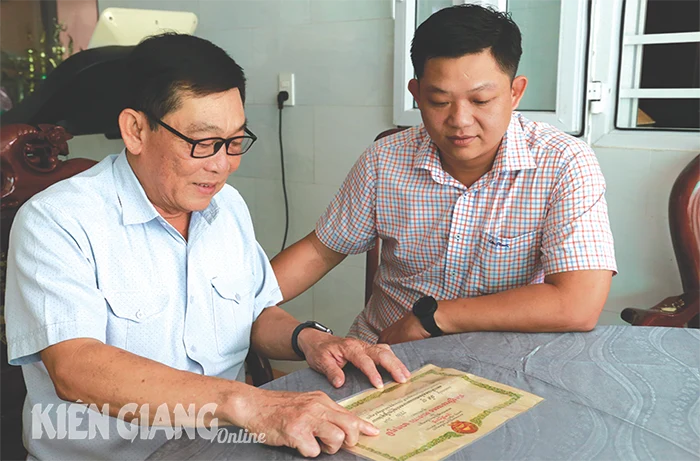
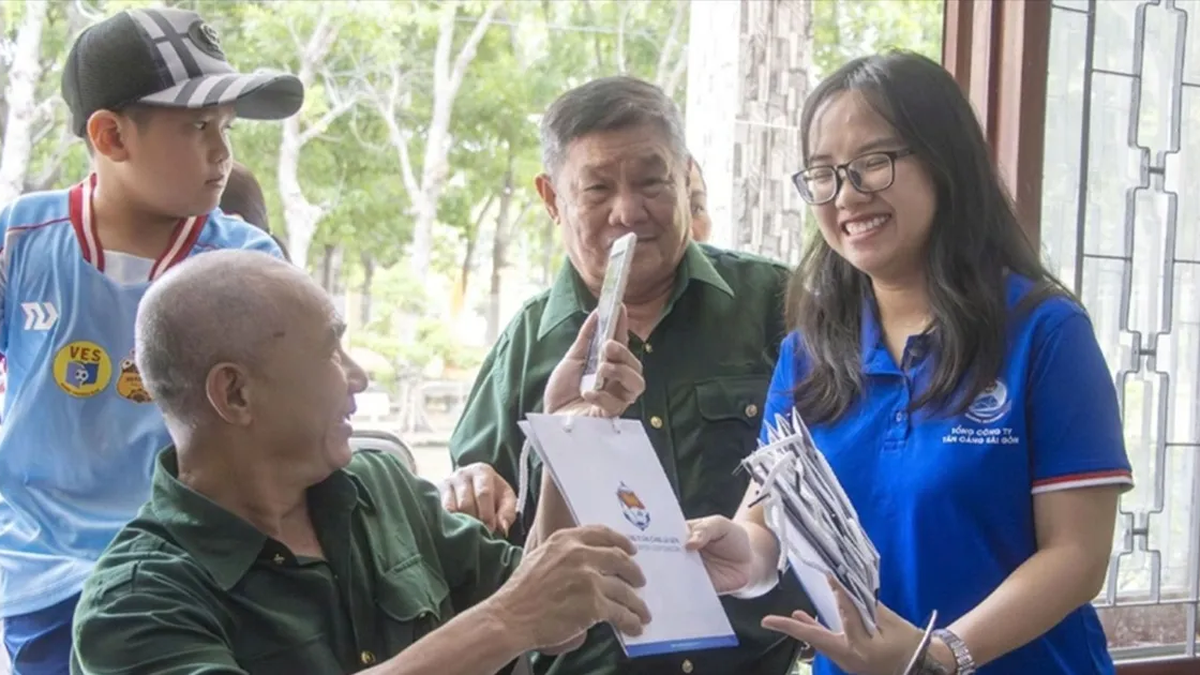
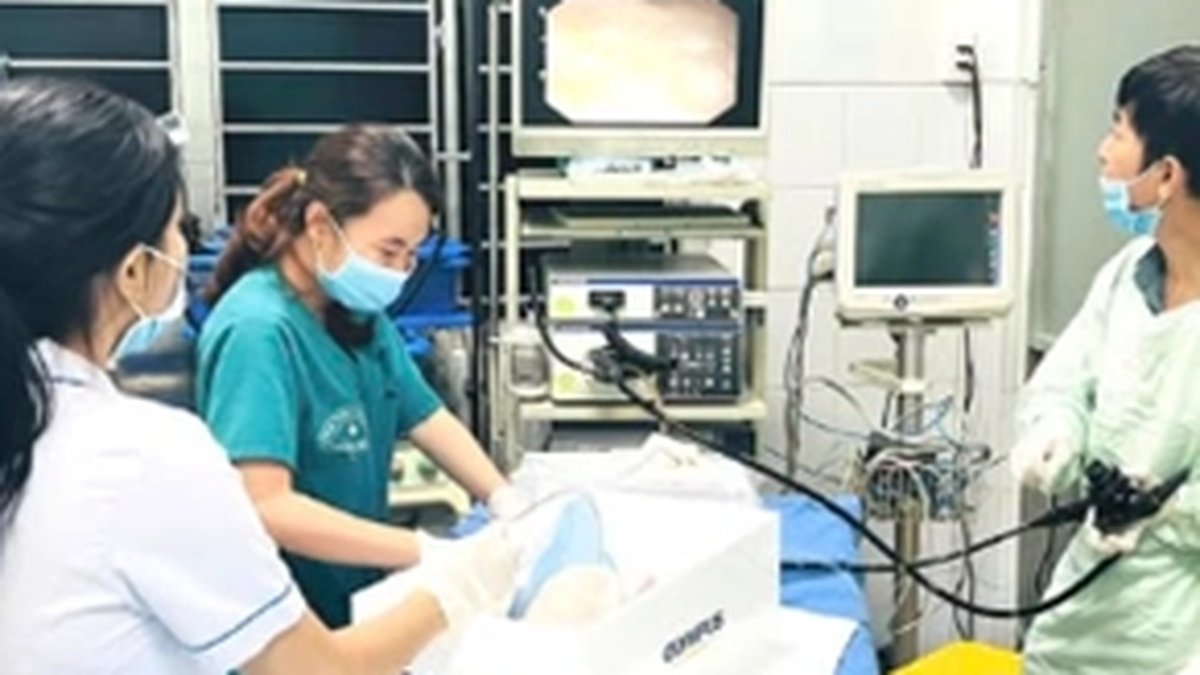


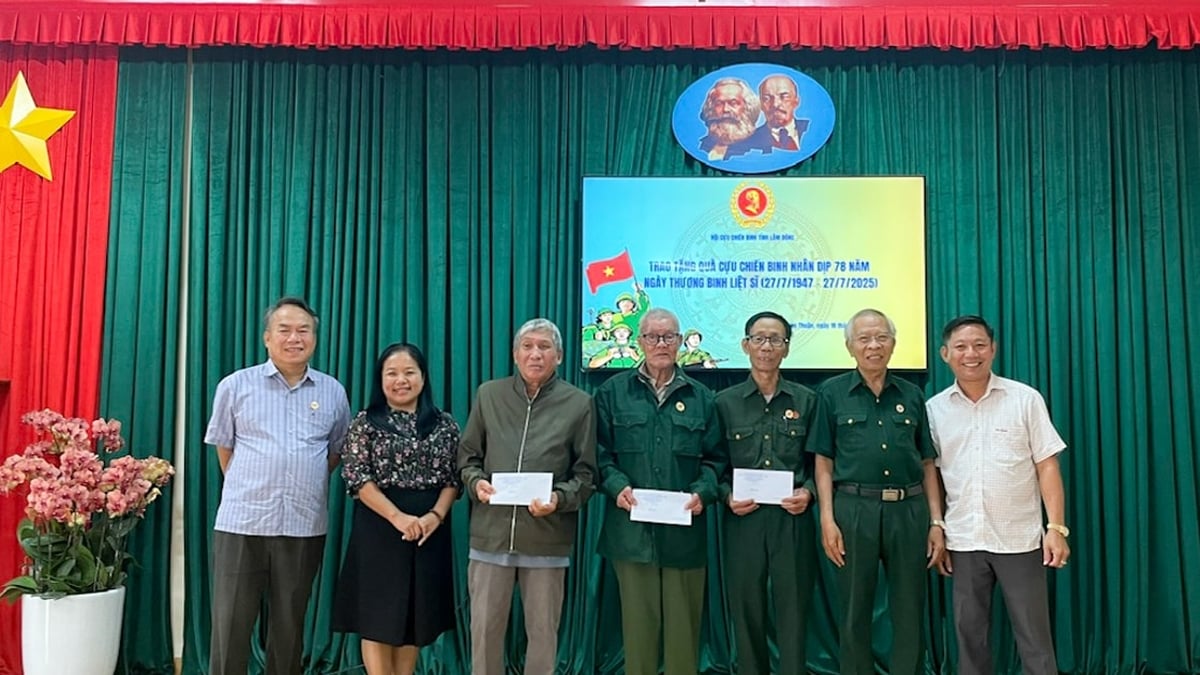
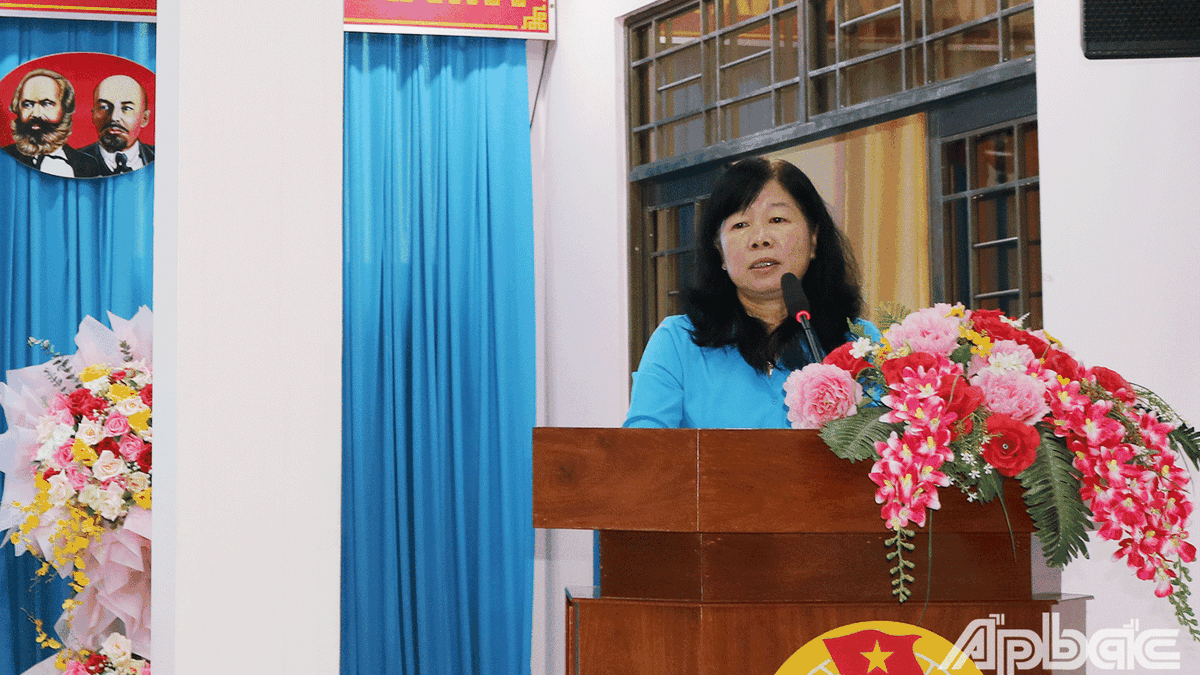
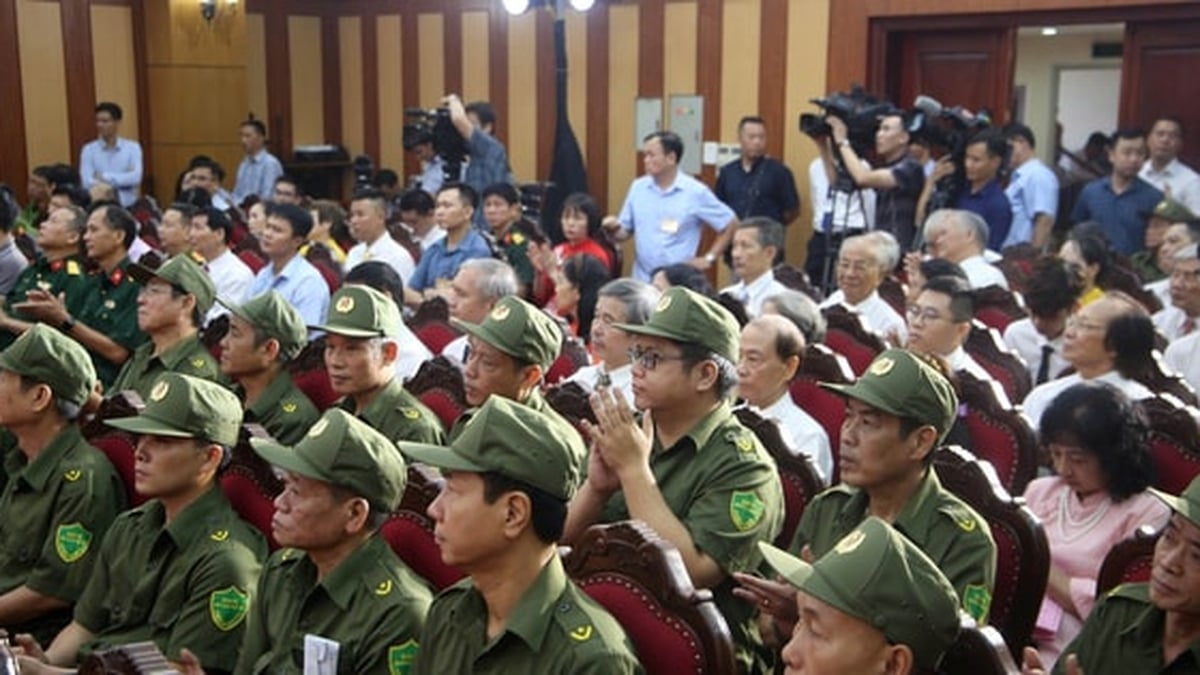

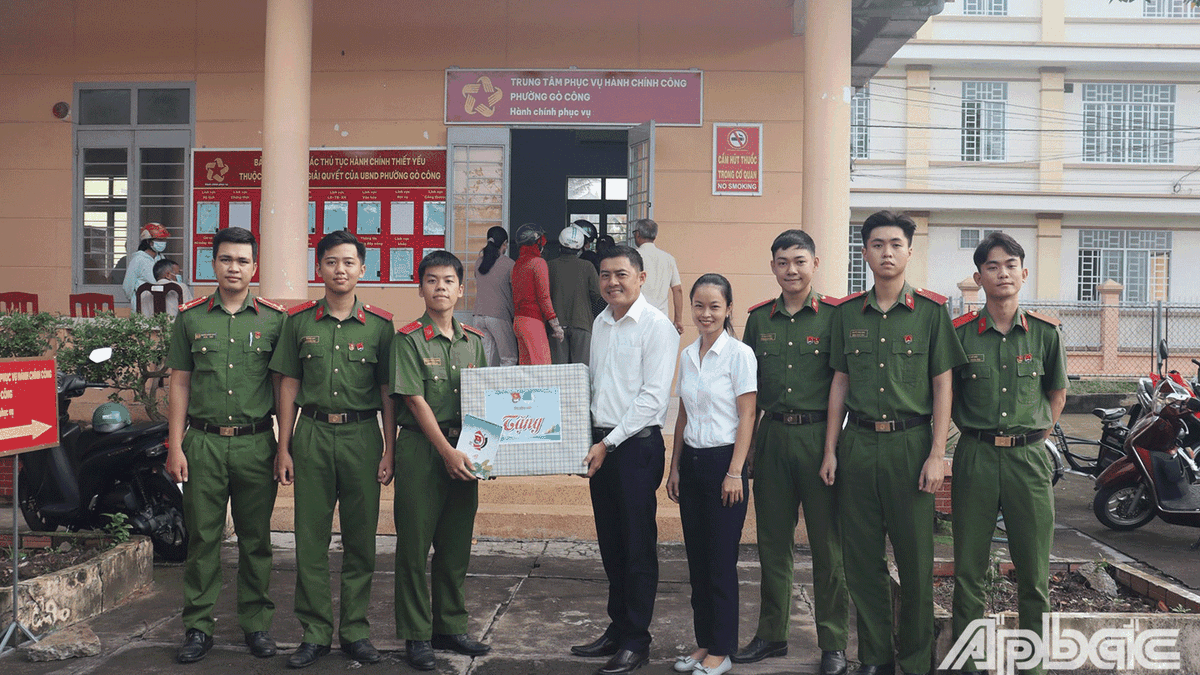
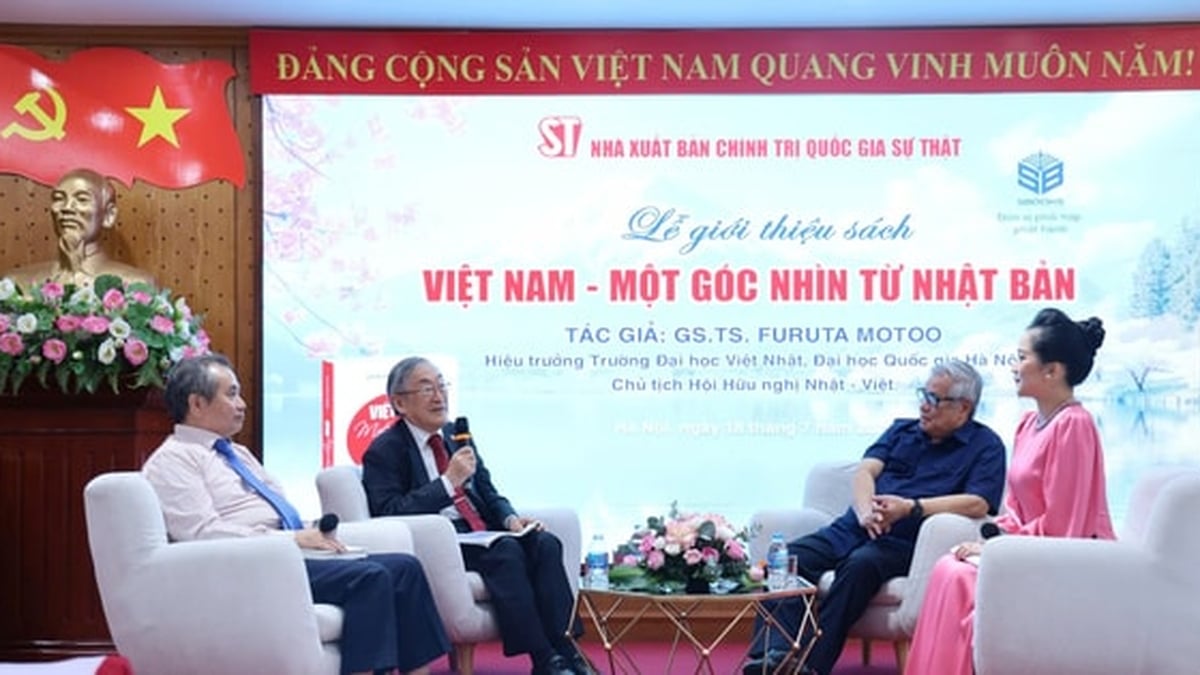

















































































![[Infographic] In 2025, 47 products will achieve national OCOP](https://vphoto.vietnam.vn/thumb/402x226/vietnam/resource/IMAGE/2025/7/16/5d672398b0744db3ab920e05db8e5b7d)





Comment (0)